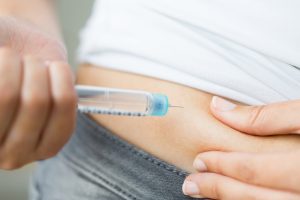
The device is known as a hybrid closed-loop system, which means it monitors blood sugar and delivers necessary basal insulin doses. When blood sugar levels drop too low, the device will automatically shut off.
Although the new device can greatly help type 1 diabetics, it is still up to the patient to determine how many carbohydrates they eat and program that information into the device in order for it to work properly.
The device is expected to be available by spring 2017. It is approved for use in those over the age of 14.
Type 1 diabetes is an autoimmune disorder in which the body mistakenly attacks insulin-producing cells. Insulin is necessary for bodily functions as it provides fuel to our many cells. In type 1 diabetics, the pancreas no longer produces insulin, so they must maintain their levels with daily injections. The challenge is figuring how much insulin a person requires, as too much or too little can be detrimental.
This is where the new device comes into play, as it constantly monitors the blood sugar levels to determine the appropriate dosage of insulin required. It delivers insulin through a small catheter beneath the skin, which is attached to a tube leading to an insulin pump. The insulin delivery site should be changed once in three days.
Aaron Kowalski of the Juvenile Diabetes Research Foundation is hopeful that the new device will change many patients’ lives. He said, “People who have participated in artificial pancreas clinical trials have not only attained better overall [blood sugar] control, but have experienced the relief of sleeping through the night and waking up in the morning with blood glucose levels within target range. That’s an improvement in quality of life that will be available to others living with type 1 diabetes very soon as a result of the FDA’s decision.”
The FDA approval is based on clinical trials involving 123 people with type 1 diabetes. None of the participants experienced hypoglycemia or diabetic ketoacidosis, a serious complication of type 1 diabetes resulting from the shortage of insulin.
Related: Can you live without a pancreas?